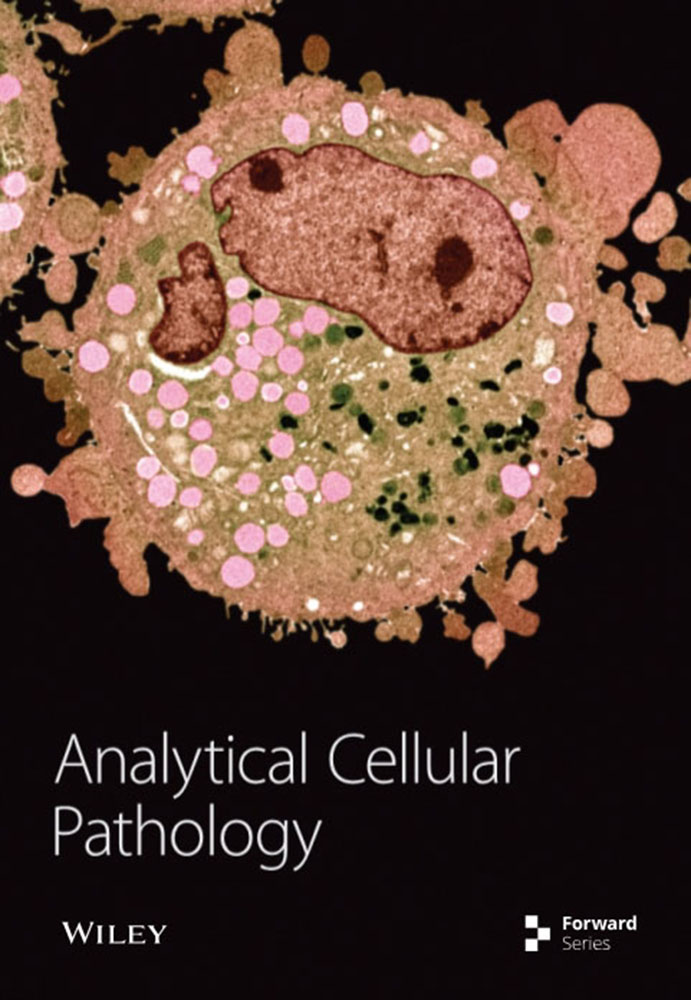Comprehensive Pan-Cancer Analysis Reveals the Potential Biological, Immunological, and Prognostic Value of NKG2A
IF 2.7
4区 医学
Q3 CELL BIOLOGY
引用次数: 0
Abstract
Background. NKG2A (KLRC1) belongs to the NKG2 family, which has been shown to affect the activity of natural killer (NK) cells and CD8T cells. However, a comprehensive biological analysis and exploration of NKG2A in different cancers is lacking and this needs to be further investigated. Methods. A comprehensive pan-cancer analysis of NKG2A was performed based on multiple databases. The Cancer Genome Atlas (TCGA) and Genotype–Tissue Expression (GTEx) databases were used to analyze the expression profile of NKG2A in pan-cancer. The relevance of NKG2A to the prognosis of different cancers was assessed using Kaplan–Meier survival analysis. In addition, we explored the correlation between NKG2A expression and gene mutations, pathological staging, tumor-infiltrating immune cells (TIICs), DNA methyltransferase (DNMT) genes, tumor mutation burden (TMB), microsatellite instability (MSI), mismatch repair (MMR), and immune checkpoints (ICPs). Finally, the expression levels of NKG2A in several cancer cell lines were verified by qRT-PCR. Results. Pan-cancer comprehensive analysis showed that NKG2A expression levels were significantly different between multiple cancers and corresponding normal tissues. The differential expression of NKG2A was related to the prognosis and pathological staging of patients with multiple cancers, and was closely related to the excessive infiltration of immune cells and the regulation of ICP genes in the tumor microenvironment (TME). In addition, TMB, MSI, MMR, and DNMT genes in many cancer types are also affected by NKG2A expression. Gene set enrichment analysis (GSEA) showed that NKG2A was associated with multiple immune-related functions and pathways in malignant tumors. qRT-PCR results showed that NKG2A was underexpressed in liver, gastric, and colon cancer cell lines compared to normal cells, which was consistent with bioinformatics analysis. Conclusion. The present study suggests that NKG2A may be a potential predictive biomarker for cancer immune response and prognosis.综合泛癌分析揭示NKG2A潜在的生物学、免疫学和预后价值
背景。NKG2A (KLRC1)属于NKG2家族,已被证明可以影响自然杀伤(NK)细胞和CD8T细胞的活性。然而,缺乏对NKG2A在不同癌症中的全面生物学分析和探索,这需要进一步研究。方法。基于多个数据库对NKG2A进行了全面的泛癌分析。利用癌症基因组图谱(Cancer Genome Atlas, TCGA)和基因型-组织表达(Genotype-Tissue Expression, GTEx)数据库分析NKG2A在泛癌中的表达谱。使用Kaplan-Meier生存分析评估NKG2A与不同癌症预后的相关性。此外,我们还探讨了NKG2A表达与基因突变、病理分期、肿瘤浸润免疫细胞(TIICs)、DNA甲基转移酶(DNMT)基因、肿瘤突变负担(TMB)、微卫星不稳定性(MSI)、错配修复(MMR)和免疫检查点(icp)之间的关系。最后,通过qRT-PCR验证NKG2A在几种肿瘤细胞系中的表达水平。结果。泛癌综合分析显示,NKG2A在多种肿瘤与相应的正常组织中表达水平存在显著差异。NKG2A的差异表达与多发性肿瘤患者的预后和病理分期有关,并与肿瘤微环境(TME)中免疫细胞的过度浸润和ICP基因的调控密切相关。此外,许多癌症类型中的TMB、MSI、MMR和DNMT基因也受到NKG2A表达的影响。基因集富集分析(GSEA)显示NKG2A在恶性肿瘤中与多种免疫相关功能和途径相关。qRT-PCR结果显示,与正常细胞相比,NKG2A在肝癌、胃癌和结肠癌细胞系中表达过低,这与生物信息学分析一致。结论。本研究提示NKG2A可能是癌症免疫反应和预后的潜在预测性生物标志物。
本文章由计算机程序翻译,如有差异,请以英文原文为准。
求助全文
约1分钟内获得全文
求助全文
来源期刊

Analytical Cellular Pathology
ONCOLOGY-CELL BIOLOGY
CiteScore
4.90
自引率
3.10%
发文量
70
审稿时长
16 weeks
期刊介绍:
Analytical Cellular Pathology is a peer-reviewed, Open Access journal that provides a forum for scientists, medical practitioners and pathologists working in the area of cellular pathology. The journal publishes original research articles, review articles, and clinical studies related to cytology, carcinogenesis, cell receptors, biomarkers, diagnostic pathology, immunopathology, and hematology.
 求助内容:
求助内容: 应助结果提醒方式:
应助结果提醒方式:


